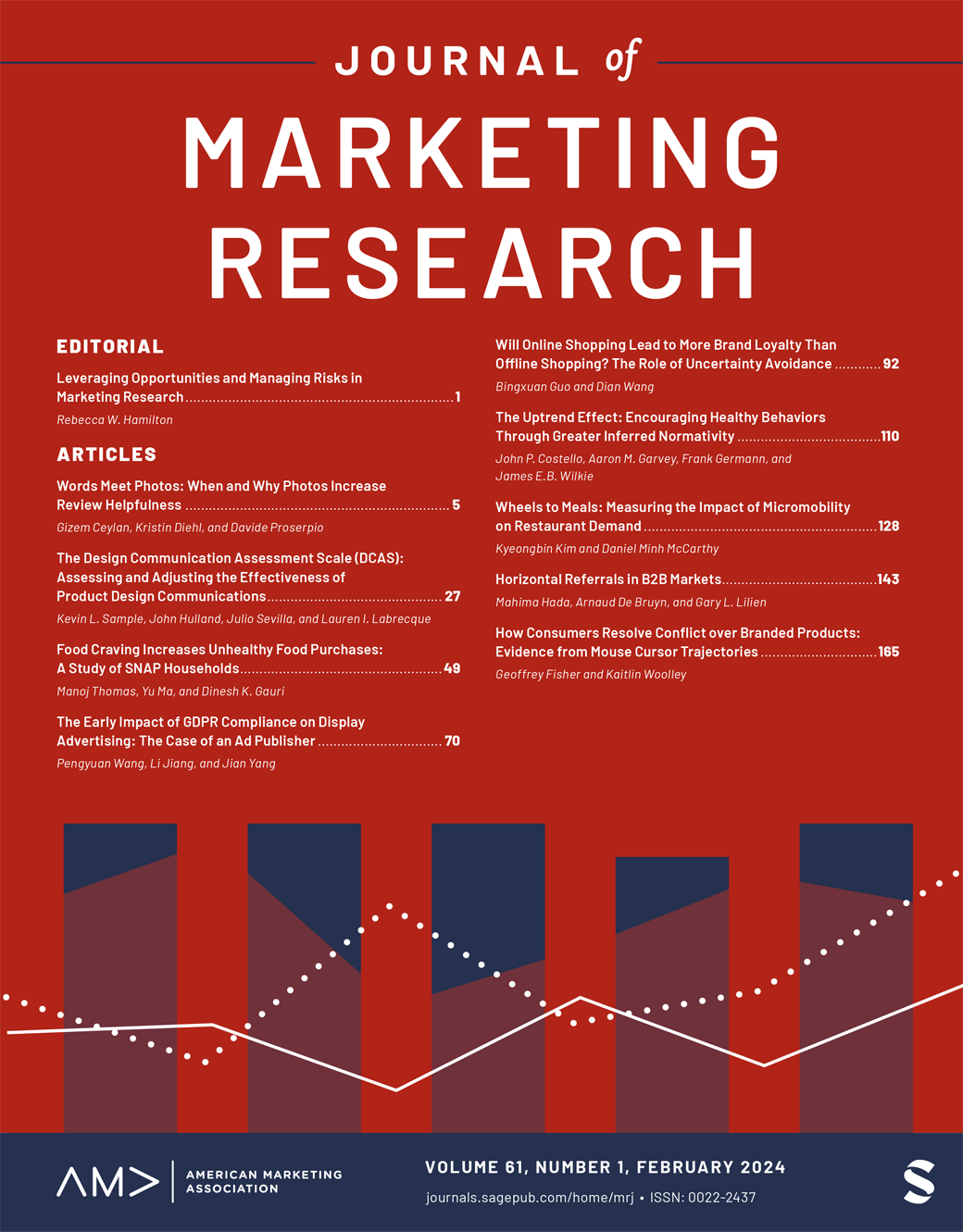EXPRESS: Using Price Promotions to Drive Children’s Healthy Choices in a Developing Economy
IF 5
1区 管理学
Q1 BUSINESS
引用次数: 0
Abstract
We examine how price discounts—a classic marketing incentive—drive children’s healthy choices in the understudied context of a developing economy. We partnered with UNICEF to launch three field experiments in Panamá among 2,418 children to examine four pillars of price discount promotions for children: What to discount (product selection), how to discount (message design), whom to target (children’s age), and whether to discount again (repetition). We uncovered four previously undocumented insights. First, we found that price discounts alone effectively increase demand among children 6-11 years old, reconciling conflicting findings in prior literature. Second, product selection based on relative price—a particularly crucial factor in developing regions—drives opposing post-promotion effects: Ironically, marketers should not discount expensive healthy options but rather moderately priced ones. Third, different from prior literature’s practice of directly communicating final prices, discount messages that require older children to derive final prices are more effective. Fourth, repetition can amplify or undermine discounts’ efficacy depending on message complexity and children’s age. Our research offers concrete guidelines for researchers and practitioners, uncovering both positive and negative effects of price promotions on children, and shedding light on price promotion interventions that most powerfully nudge children of different ages to act.快讯:在发展中经济体利用价格促销推动儿童的健康选择
我们研究了价格折扣--一种经典的营销激励机制--如何在发展中经济体这一研究不足的背景下推动儿童做出健康的选择。我们与联合国儿童基金会合作,在巴拿马的 2418 名儿童中开展了三项实地实验,研究针对儿童的价格折扣促销活动的四大支柱:打折的内容(产品选择)、打折的方式(信息设计)、打折的对象(儿童年龄)以及是否再次打折(重复)。我们发现了四个以前未曾记录的见解。首先,我们发现仅靠价格折扣就能有效增加 6-11 岁儿童的需求,这与之前文献中相互矛盾的结论相一致。其次,基于相对价格的产品选择--这在发展中地区尤为重要--会产生相反的促销后效果:具有讽刺意味的是,营销人员不应该贬低价格昂贵的健康产品,而应该贬低价格适中的产品。第三,与以往文献中直接传达最终价格的做法不同,要求年龄较大的儿童推导出最终价格的折扣信息更为有效。第四,根据信息的复杂程度和儿童的年龄,重复会放大或削弱折扣的效果。我们的研究为研究人员和从业人员提供了具体的指导,揭示了价格促销对儿童的积极和消极影响,并阐明了价格促销干预措施对不同年龄段儿童的最有力推动作用。
本文章由计算机程序翻译,如有差异,请以英文原文为准。
求助全文
约1分钟内获得全文
求助全文
来源期刊

Journal of Marketing Research
BUSINESS-
CiteScore
10.30
自引率
6.60%
发文量
79
期刊介绍:
JMR is written for those academics and practitioners of marketing research who need to be in the forefront of the profession and in possession of the industry"s cutting-edge information. JMR publishes articles representing the entire spectrum of research in marketing. The editorial content is peer-reviewed by an expert panel of leading academics. Articles address the concepts, methods, and applications of marketing research that present new techniques for solving marketing problems; contribute to marketing knowledge based on the use of experimental, descriptive, or analytical techniques; and review and comment on the developments and concepts in related fields that have a bearing on the research industry and its practices.
 求助内容:
求助内容: 应助结果提醒方式:
应助结果提醒方式:


